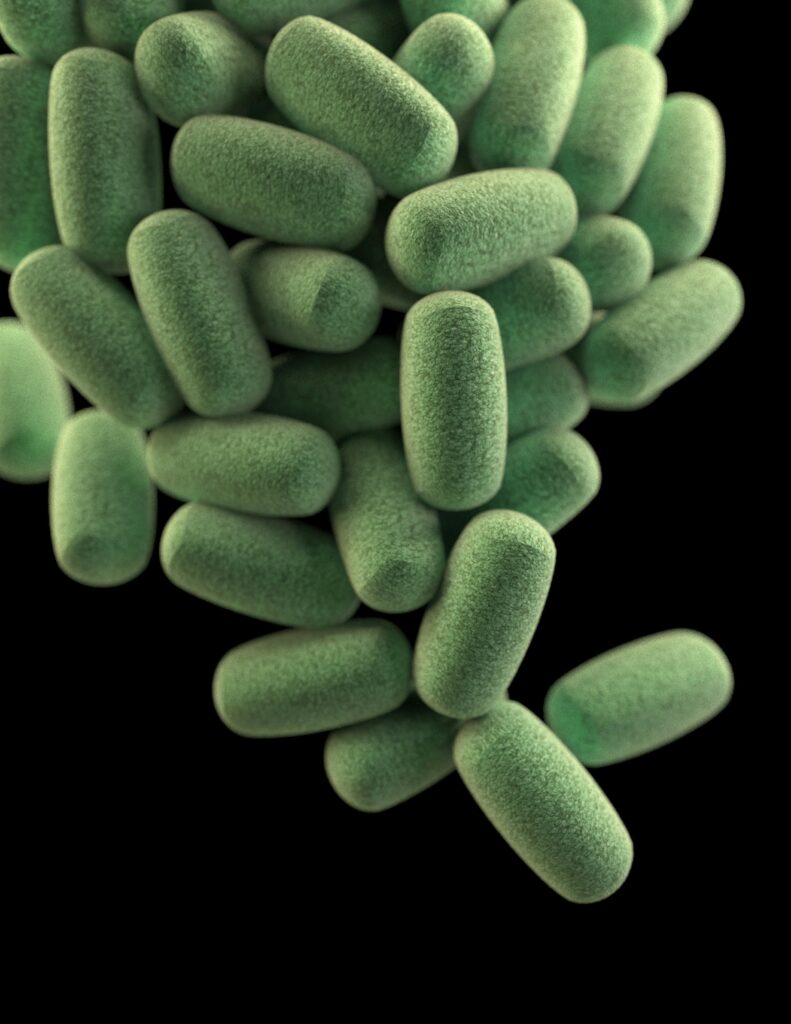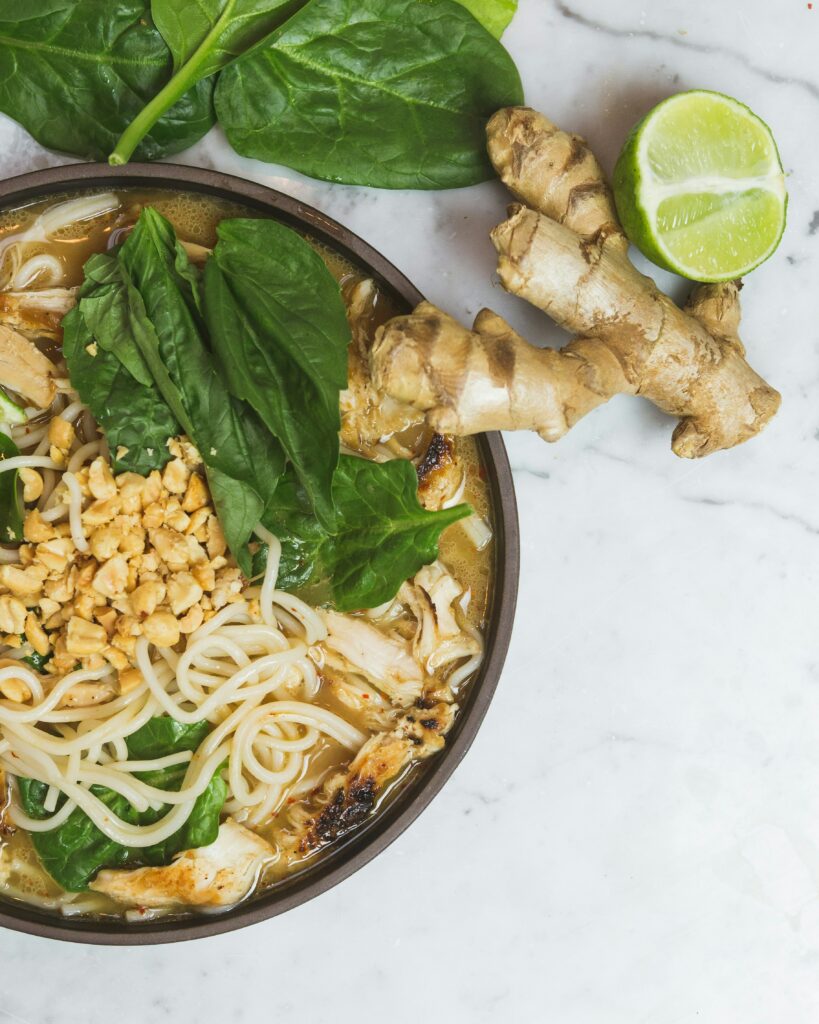Herbs & Natural Remedies that can Restore your Microbiome

What is your gut microbiome?
The gut microbiome refers to the complex community of microorganisms that reside in the gastrointestinal tract, primarily in the large intestine. It is composed of trillions of bacteria, viruses, fungi, and other microbes, collectively known as gut flora or gut microbiota.
The gut microbiome plays a crucial role in maintaining various aspects of human health. It helps break down dietary fibres, produces certain vitamins and other beneficial compounds, regulates the immune system, influences metabolism, and supports the integrity of the gut lining.
The composition and diversity of the gut flora can vary significantly from person to person, influenced by factors such as : genetics, diet, lifestyle, antibiotic use, and environmental exposures. An imbalance in the gut microbiome, known as gut dysbiosis, has been associated with various health conditions, including gastrointestinal disorders, weight gain, high blood sugar, high cholesterol, metabolic disorders, immune system dysfunction, and mental health issues.
Maintaining a healthy and diverse gut microbiome is essential for overall heath.
How do I know if my gut is unhealthy?

There are several signs and symptoms that may indicate an unhealthy gut. While these signs may be general and could be caused by various factors, they can serve as a starting point for identifying potential gut health concerns.
- Digestive issues : Frequent bloating, gas, diarrhoea, constipation, heartburn, or abdominal pain can indicate gut imbalances or sensitivities.
- Food intolerances : The development of new or worsening food intolerances, especially to previously well-tolerated foods, may point to gut health issues.
- Low energy levels : Feeling consistently fatigued or experiencing a lack of energy could be a sign of poor nutrient absorption or imbalances in the gut.
- Changes in weight : Unexplained weight gain or weight loss may be linked to gut health concerns, as the gut microbiome plays a role in metabolism and nutrient extraction.
- Skin problems : Conditions like acne, eczema, or rosacea can be related to gut issues, as the gut and skin are closely connected.
- Mood disorders : Mood-related issues, such as anxiety, depression, irritability, or brain fog, can sometimes stem from an imbalance in the gut-brain axis.
- Autoimmune conditions : Certain autoimmune conditions, such as inflammatory bowel disease (IBD) or rheumatoid arthritis, have been linked to gut health imbalances.
- Frequent infections : A weakened immune system stemming from an unhealthy gut can lead to an increased susceptibility to infections.
- Nutritional deficiencies : The gut is responsible for nutrient absorption, so deficiencies in vitamins (e.g., vitamin D, B12) or minerals can point to potential gut dysfunction.
- Chronic inflammation : Ongoing systemic inflammation, often indicated by joint pain, chronic fatigue, or frequent headaches, can be connected to gut health problems.
How can I look after my microbiome?

Looking after your gut microbiome involves adopting habits and making choices that support the health and diversity of the microorganisms in your gut.
Strategies to support a healthy gut microbiome include consuming a balanced diet rich in fibre, prebiotic foods (that nourish the beneficial bacteria) and probiotic-rich foods (that contain live beneficial bacteria), minimising the use of unnecessary antibiotics, managing stress levels, and leading an overall healthy lifestyle.
You will find below some tips to help managing your gut health. Please remember that everybody is unique and has different needs, you naturopath or natural health practitioner will guide you towards which steps are more tailored to your needs.
- Eat a Fibre-Rich Diet : Consuming a variety of fruits, vegetables, whole grains, legumes, nuts, and seeds provides prebiotic fibres that act as food for beneficial bacteria. Aim for at least 25-30 grams of fibre per day.
- Include Fermented Foods : Consuming fermented foods like yogurt, kefir, sauerkraut, kimchi, tempeh, and kombucha can introduce beneficial live bacteria (probiotics) into your system, which can help support a healthy gut microbiome.
- Minimise processed foods and added sugars : High intake of processed foods and added sugars can negatively affect the diversity and health of your gut microbiome. Prioritise whole, unprocessed foods as the foundation of your diet.
- Stay Hydrated : Drinking enough water is crucial for maintaining a healthy gut. Aim to drink at least 8 cups of water per day, more if you exercise.
- Reduce antibiotic use : While antibiotics can be life-saving, they can disrupt the gut microbiome by killing both harmful and beneficial bacteria. Use antibiotics only when necessary & accompany by a probiotic supplement during the length of your treatment and the following weeks.
- Manage Stress : Chronic stress can impact the gut microbiome. Learn to manage your stress levels with practices such as meditation, deep breathing exercises, yoga, regular exercise, and spending time in nature.
- Get Regular Physical Activity : Regular exercise has been associated with a more diverse gut microbiome. Strive for at least 2 and a half hours of moderate-intensity aerobic activity or 75 minutes of vigorous activity per week. Walking everyday is a very good start!
- Get Adequate Sleep : Prioritise consistent, quality sleep, as it helps maintain a healthy gut microbiome. Aim for 7 to 9 hours of sleep per night depending on your constitution.
- Avoid toxins : Minimise exposure to toxins such as cigarette smoke, excessive alcohol, and environmental pollutants, as they can negatively affect the gut microbiome.
- Consult your naturopath : If you have specific gut health concerns or medical conditions, consider consulting with a holistic practitioner who specialises in gut health to receive personalised advice.
Remember, everyone’s gut microbiome is unique, and what works for one person may not work the same for another.
The natural remedies supporting gut health :

There are several natural remedies that support gut health:
Probiotics : Probiotics are beneficial live bacteria that can help maintain a healthy gut microbiome. They are available as supplements or can be found in fermented foods like yogurt, kefir, sauerkraut, kimchi, tempeh, and kombucha.
Prebiotics : Prebiotics are types of fibre that nourish the beneficial bacteria in your gut. Examples include onions, garlic, leeks, asparagus, bananas, apples, oats, and flaxseeds.
Ginger : Ginger has been used to support digestion and reduce inflammation in the gut. It can be consumed in various forms, such as ginger tea, grated into meals, or taken as a supplement.
Peppermint : Peppermint has been traditionally used to soothe digestive discomfort and relieve symptoms such as bloating and gas. Peppermint tea or peppermint oil capsules may be beneficial for some people suffering from a light form of IBS.
Slippery Elm : Slippery elm is an herb that has a soothing effect on the gut lining and can help alleviate symptoms such as heartburn and gastrointestinal inflammation. It’s usually taken in powder or capsule form.
Aloe Vera : Aloe vera gel can have a soothing effect on the gastrointestinal tract and may help with conditions like irritable bowel syndrome (IBS). It is usually consumed as a drink or taken in supplement form.
Liquorice Root : Liquorice root has anti-inflammatory properties and helps alleviate symptoms of acid reflux and stomach ulcers. However, it’s important to note it can increase the blood pressure, so please contact first your natural healthcare practitioner before adding it to your diet and or supplements.
Chamomile : Chamomile tea has calming properties and can help relieve digestive discomfort and promote relaxation.
Dandelion Root : Dandelion root has been used to support liver function and promote healthy digestion. It can be consumed as a tea, digestive elixir or in supplement form.
There are many more herbs that are used in traditional herbal medicine to deal with all kind of digestive issues, do not hesitate to ask your herbalist for help.
Remember it is always wise to consult with your naturopath before starting any new supplements or remedies, especially if you have underlying health conditions or take medications that may interact. They can provide personalised advice and guidance based on your specific needs.
How long does it take to restore my gut microbiome?

Each person’s gut microbiome is unique, and therefore, the time it takes to restore your gut microbiome can vary significantly depending on several factors. Genetics, overall health, previous antibiotic use, the extent of imbalance or damage to the microbiome, and the interventions or lifestyle changes implemented all influence the rate of improvement.
Nevertheless, if you make significant changes to your diet and lifestyle you may start experiencing reduced symptoms, improved digestion, and increased energy levels within a few weeks.
Restoring and maintaining a healthy gut microbiome is an ongoing process.
It can take several months to fully restore and diversify the gut microbiome. Consistency and commitment to healthy habits are crucial for long-term success.
If you have significant gut health issues or conditions, it may take longer to restore the microbiome. Consulting with a natural healthcare practitioner who specialises in gut health can help create an individualised plan and provide a more accurate estimate based on your specific situation.
Remember that restoring the gut microbiome is not a one-size-fits-all process, and results may vary. It is important to focus on sustainable, long-term changes to your diet, lifestyle, and overall health to support the ongoing health of your gut microbiome. Implementing habits such as eating a balanced diet, managing stress, getting regular physical activity, ensuring adequate sleep, and minimising exposure to toxins can all contribute to the restoration and maintenance of a healthy gut microbiome.
Categories
- Ashwagandha (1)
- Detox (1)
- Detox (1)
- Dry January (1)
- Gut Health (1)
- Immunity (3)
- Lifestyle (5)
- Sleep (1)
- Wellbeing (3)
- Winter blues (1)

No Comments